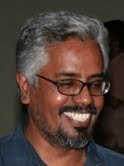FIFA - The Euphoria and the Match
The World Cup Euphoria
The world cup football is one of the most-watched event in human history, where billions of people are hooked on to the same stimulus at the same time, as and when it happens. All over the world people are glued to their TV sets, absorbed by the performance of their heroes and nations. It is a truly global event, where religion, class and race become irrelevant and the whole world becomes one in a celebration of physical prowess and fair play.
As Kofi Annan puts it very bluntly, "The World Cup makes us at the UN green with envy. As the pinnacle of the only truly global game, played in every country by every race and religion, it is one of the few phenomena as universal as the UN. You could say it's more universal. Fifa has 207 members; we have only 191. But there are better reasons for our envy. This is an event in which everybody knows where their team stands, and what it did to get there." And more importantly, "The competition takes place on a level playing field, where every country has a chance to participate on equal terms. Only two commodities matter: talent and teamwork."
Taking the metaphor into neo-liberal terrains, he goes on to pinpoint "the interference of subsidies, barriers or tariffs" as the villains, his concerns about "cross-pollination between peoples and countries" are genuine. Definitely it is a place where all nations rub shoulders and his words about national pride acquire added poignancy in the context of the brilliant display by Ghana, his native country, defeating the otherwise-mighty US yesterday (2-1) to ensure their place in the next round.
Since the first live telecast of a football match between England and Scotland on 9 April 1938, both sports and television have come a long way. At present, the survival and growth of both are intimately linked where they fuel and drive each other. Before television, sport was elitist or exclusivist in the sense that those who did not attend the event or participate in it could not share its excitement. When radio came, it became possible to follow the drama blow by blow, but it was TV that changed the whole event and experience. Now, sports live and die on account of television and it has virtually made sports into an international language, spurring the very dynamic process of 'cross pollination'. Sport has become entertainment, and typical of the medium, the heroes and personalities outrun the game; and with the gradual retreat of public broadcasting all over the world, it is advertisers and sponsors decide the tempo and tenor of the game.
But despite everything, watching sport events live strikes an intimate chord everywhere. It may be because of the fact that, in a sophisticated media world we live in where most formulas for drama or soap opera or light entertainment have been exhausted, it is only sports that "offers an ideal combination of the dramatic and the unexpected" (Steven Barnett). Or, it may be our yearning for some sorts of "goals" being reached and results being achieved and fair play being transparently played out and refereed in front of the whole world .
It also poses the deeply troubling question about the painful imbalance between the exploding popular interest for a particular sport as a global spectacle and its decimation at the local level. Will this all-engrossing euphoria that dissolves differences transport itself to sponsorship and involvement at the Sevens' Football Tournaments in Malabar, or the Puja Cricket Tournament in Tripunithura? Would the sweat and tears of the local heroes be as glorious as those adulated over our TV screens? Or, like in global economy, is it all just a question of economies of scale, efficiency and quality, supply and demand? Sad questions to ask in these euphoric moments.
C S Venkiteswaran


0 Comments:
Post a Comment
Subscribe to Post Comments [Atom]
<< Home